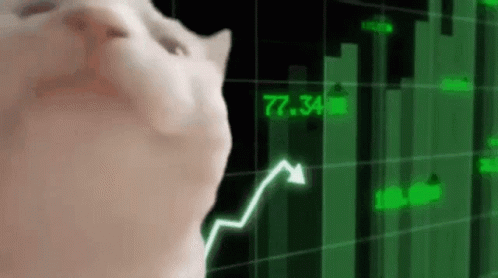The stock markets are one of the most popular investment avenues in today’s day and age. If planned and executed correctly, investing in stocks can yield higher returns than bank accounts, commodities and even bonds. Because of potentially higher returns, high liquidity and the availability of various investment options, stock markets attract loads of investors.
While investing in the stock markets, one will frequently read about a few terms. While we can compile a dictionary full of these terms, a few of them are more important than others because they constitute the basics of investing in stock markets. Through this article, we will understand the difference between a trading account and a Demat account.
What are Trading Accounts?
A trading account is an investment-linked account that holds securities, cash and other holdings on behalf of the investors. Trading accounts assist users in seamlessly buying and selling securities in the capital markets. A trading account is necessary for trading in the stock markets.

If an investor does not have a trading account registered under their name, the Securities and Exchange Board of India will not let them invest in the stock markets. Each trading account is assigned a unique trading ID. The costs associated with trading accounts differ from brokerage to brokerage, so one must carefully consider all options available.
Why do you need Trading Accounts?
As an investor, one needs a trading account to place orders and transact on relevant exchanges. Besides that, your trading account forms the bridge between your Demat account and bank account as it is linked to both. It is with the help of a trading account that investors can access numerous stock exchanges and trade securities through them.
What are Demat Accounts?
Dematerialisation accounts, colloquially called demat accounts, convert physical shares into electronic securities and vice-versa. An investor’s securities are stored in the Demat account — including shares, bonds, futures, mutual funds, etc. Just like trading accounts, demat accounts also have a unique number assigned to them.
A dematerialisation account is quite similar to a bank account in how it functions. Your securities get transferred into demat accounts. You can open a demat account under your name with zero balance. All the securities you purchase will be stored in this account.
Why do you need a Demat Account?
Dematerialisation accounts are essential for investors because it is through these accounts that investors can hold various financial products like shares, mutual funds, ETFs, bonds, etc. As it stores securities in electronic form, it makes the transfer and storage of securities easier. Lastly, it assists individuals in the process of trading and investing.
Understanding the difference between Demat and Trading Accounts
Functionality
The principal function of a trading account is to allow for the purchase and sale of stock on the stock exchanges. Your account is credited or debited based on your accomplished transactions for purchase and sales trades, accordingly. A demat account allows you to keep various forms of investments electronically and, if necessary, convert them to physical form.
Costs Involved
Both accounts are subject to different types of fees. For the trading account, individuals have to pay a one-time cost upon opening the account -in addition to expenses such as GST, securities turnover tax, stamp duty and exchange charges. There are charges in the Demat account such as annual maintenance charges, transaction fees when acquiring or transferring shares, and custodian charges assessed by the brokerage.

Approval from Regulatory Institutions
You do not require any approval from regulatory authorities such as NSDL or SEBI in the case of trading accounts. However, in the case of dematerialisation accounts, such approvals are mandatory.
In-Charge of Operations
Third-party institutions operate both trading and Demat accounts. The brokerage party, through which you open the account, manages the operations of trading accounts. On the other hand, for demat accounts, the Central Depository undertakes all operations, with the brokerages acting as auxiliary.
Is it necessary to have both the Trading and Demat Account to invest in the stock markets?
By law, you need not have both a trading and a demat account. If a person wishes to apply for an Initial Public Offering, they might choose to have solely a demat account. But if the investor wants to sell the allotted shares on the stock market, they will require a trading account.
Similarly, if you merely wish to trade futures, options, and currency derivatives in the securities market, a demat account is not necessary. In the case of stocks, however, SEBI has made it mandatory for investors to hold both demat and trading accounts.
Conclusion
Both the trading and demat accounts are vital for making the most out of investing in the stock markets. While these accounts differ in a lot of aspects, the underlying principle for their existence is the same. It is to streamline the investing process for consumers.
However, before one starts to invest their hard-earned money in the stock markets in the hopes of making money, it is necessary to understand the basics. Now that you know the how and why behind trading and demat accounts, you will have a little more confidence the next time you invest. Happy investing!

